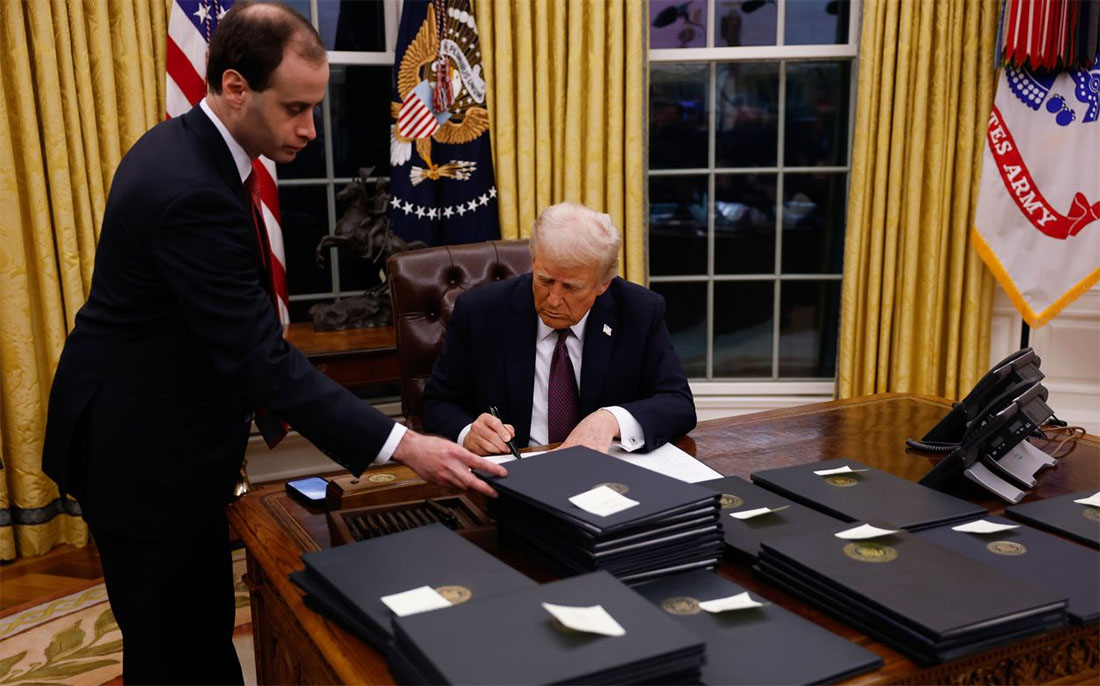
Photo Credit: Getty Images
President Donald Trump signed an executive order that establishes regulations preventing transgender women from competing in female categories of sports. The order also provides guidance and legal interpretations, directing the Department of Education to investigate instances of non-compliance within high schools.
Republicans say it restores fairness to sports but LGBT advocacy and human rights organisations have described the move as discriminatory.
The order, which goes into effect immediately, largely covers high school, universities and grassroots sports. A number of sporting governing bodies, including swimming, athletics and golf, have banned transgender women from competing in the female category at elite level if they have gone through male puberty.
According to White House officials who briefed reporters on Wednesday morning, this latest order empowers the Department of Education to investigate how schools implement Title IX, a US law that bans sex discrimination in federally funded education programmes.
An administration official said that the executive order will reverse the position of the Biden administration which in April last year said that LGBT students would be protected by federal law, although it did not give specific guidance on transgender athletes.
Additionally, the White House plans to bring in sporting bodies - such as the National Collegiate Athletics Association, or NCAA - to come to the White House to meet female athletes and their parents to discuss concerns.
On Trump's first day in office on 20 January, he signed a separate order calling for the federal government to officially define sex as either being male or female.
President Trump specified that the order would include the 2028 Olympic Games in Los Angeles. He has said he will deny visas for transgender Olympic athletes trying to visit the US to compete at the LA Games.
In a statement, Human Rights Campaign president Kelley Robinson said that the order "exposes young people to harassment and discrimination, emboldening people to question the gender of kids who don't fit a narrow view of how they're supposed to dress or look".
Less than 1% of the population over the age of 13 in the US are transgender, according to a study by the UCLA Williams Institute, and the number playing sports is smaller.
















